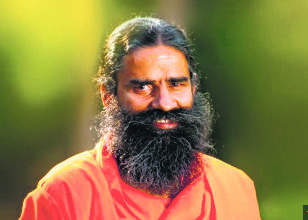The Supreme Court in the Case Chandrapal vs State of Chhattisgarh observed that only as a corroborative piece of evidence, the extra judicial confession made by the co-accused could be admitted in evidence.
the bench observed On the contention regarding ‘Last seen theory that if the possibility of suicidal death could not be ruled out the evidence of prosecution falls short of proof of homicidal death of the deceased and merely on the basis of the theory of “Last seen together”, the appellant accused could not have been convicted.
The Court further contended that if a weak piece of evidence of the co-accused Videshi was not duly proved or found trustworthy for holding the other co-accused guilty of committing murder of the deceased Brinda and Kanhaiya thereafter the said evidence could not have used by the High Court against the present appellant for the purpose of holding him guilty for the alleged offence.
It was being observed by the court that an extra judicial confession attains greater credibility and evidentiary value if it is supported by chain of cogent circumstances and is further corroborated by other prosecution evidence.
Th Court noted when more persons than one is being tried jointly for the same offence, and a confession made by one of such persons affecting himself and some other of such persons is proved as per section 30 of the Evidence Act and such confession may be taken into consideration by the Court as against such other person and the court should also take the consideration against the person who makes such confession.
In the present case the four accused named Bhagirathi, Chandrapal, Mangal Singh and Videshi were convicted by Trial Court under Section 302 and Section 201 read with section 34 of IPC. Allowing the appeal filed by three of them viz Bhagirathi, Mangal Singh and Videshi, the Chhattisgarh High Court set aside their conviction and under 302 reading with section 34 of IPC, the sentenced was imposed upon the four accused but confirmed their conviction for the offence under section 201 read with section 34 of IPC. the appeal filed by Chandrapal was refused by the High Court and therefore Chandrapal approached the Apex Court.
The Bench comprising of comprising Justice DY Chandrachud and the Justice Bela M. Trivedi observed that the extra judicial confession allegedly made by the co-accused loses its significance and there cannot be any conviction based on such extra judicial confession of the co-accused, in the absence of any substantive evidence against the accused.
Th Court noted when more persons than one is being tried jointly for the same offence, and a confession made by one of such persons affecting himself and some other of such persons is proved as per section 30 of the Evidence Act and such confession may be taken into consideration by the Court as against such other person and the court should also take the consideration against the person who makes such confession.










